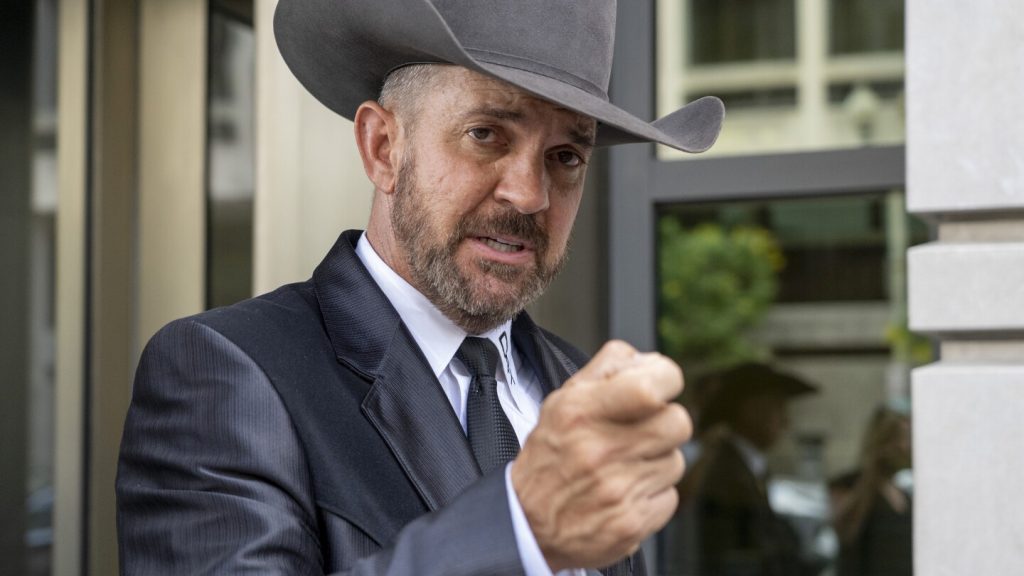The Supreme Court has rejected an appeal from former New Mexico county commissioner Couy Griffin, who was banned from office after participating in the Jan. 6, 2021 insurrection at the U.S. Capitol. Griffin, a cowboy pastor known for his support of former President Donald Trump, was the only elected official to be disqualified in connection with the Capitol attack. The Supreme Court justices ruled that states have the authority to disqualify individuals from holding state office, even though different rules apply to federal candidates like Trump.
Griffin was convicted in federal court of entering a restricted area on Capitol grounds on Jan. 6 and was sentenced to 14 days in prison, which was offset by time served after his arrest. He claims to have entered the Capitol grounds without realizing it was restricted and only led a crowd in prayer using a bullhorn, without engaging in violence. The recent ruling in the Trump case prevented efforts in multiple states to disqualify Trump from running for president due to allegations that he incited the insurrection. Griffin’s disqualification could set a precedent for holding state and local officials accountable for their involvement in the Jan. 6 attack.
At Griffin’s trial in state district court, the judge ruled that he aided the insurrection by spreading lies about the 2020 election being stolen and inciting the crowd to join the “war” over the presidential election results. Griffin’s defense argued that only Congress, not a state court, has the power to enforce the anti-insurrection clause of the 14th Amendment through legislation. The New Mexico Supreme Court declined to hear Griffin’s case after he missed procedural deadlines. Griffin criticized the Supreme Court’s decision as an attack on democracy and expressed concerns about the future of the political system.
Griffin, who founded the group Cowboys for Trump to support Trump’s conservative message, faced a recall petition drive in 2021 and was ultimately disqualified from office based on his involvement in the Capitol attack. Despite his legal troubles, Griffin was acquitted by a jury in his home county of allegations related to Cowboys for Trump. He continues to portray himself as a victim of political persecution and a patriot, highlighting his involvement in the Jan. 6 attack as a day of extraordinary patriotism. Griffin’s case sheds light on the ongoing efforts to hold elected officials accountable for their actions and rhetoric surrounding the events of Jan. 6.
The outcome of Griffin’s case could have broader implications for other state and local officials who were involved in the Capitol attack. The ruling by the Supreme Court clarifies that states have the authority to disqualify individuals from holding state office based on their actions. Griffin’s defense focused on free speech arguments and questioned whether the events of Jan. 6 constituted an insurrection as defined in the Constitution. Despite his protests, Griffin’s disqualification stands as a warning to elected officials about the consequences of participating in violent or seditious acts. The legal battle surrounding Griffin’s case highlights the ongoing debate over accountability and responsibility in the aftermath of the Capitol attack.


